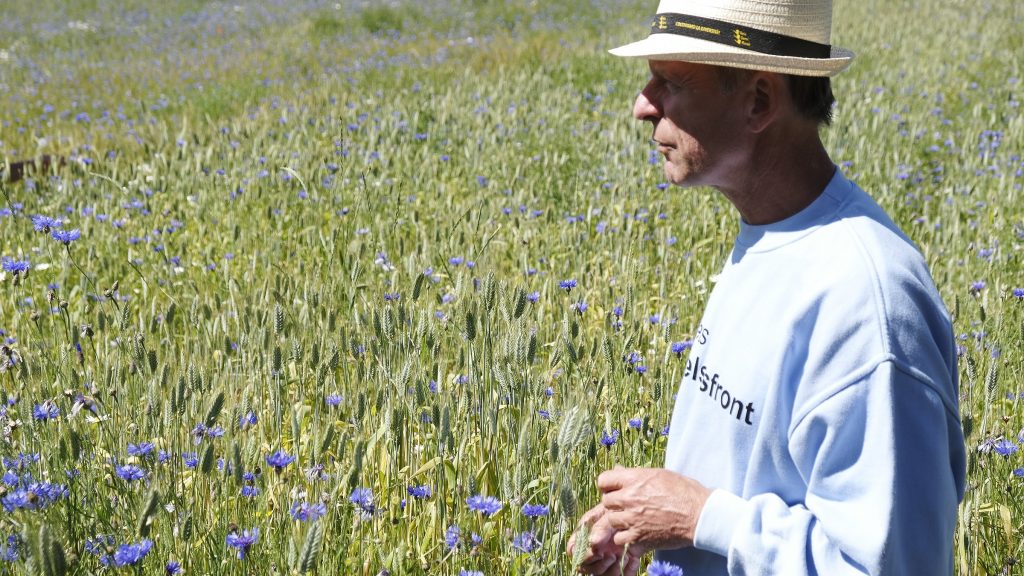 Anders Borgen has been organic farmer for 35 years, and has for the past 15 years worked as a private organic plant breeder in Northern Jutland, Denmark. He has studied agricultural science and philosophy and has a Ph.D. in Agriculture. Hannes Lorenzen meet Anders Borgen at the European Cereal Diversity Conference in Kalö near Aarhus in Denmark. For the past 10 years, cereal enthusiasts have met annually in Scandinavia, and four times at European level in the Let’s Liberate Diversity Network.
Anders Borgen has been organic farmer for 35 years, and has for the past 15 years worked as a private organic plant breeder in Northern Jutland, Denmark. He has studied agricultural science and philosophy and has a Ph.D. in Agriculture. Hannes Lorenzen meet Anders Borgen at the European Cereal Diversity Conference in Kalö near Aarhus in Denmark. For the past 10 years, cereal enthusiasts have met annually in Scandinavia, and four times at European level in the Let’s Liberate Diversity Network.
You call yourself a nurd – a special kind of stubborn. What is so crazy about working with organic cereals?
Maybe because I was told to be crazy in what I am doing. But I am just convinced of it. Here in Kalö Organic Farm school I studied thirty five years ago and I am still working with cereals. Already back then I saw that organic farming had some problems, especially with seeds and varieties fit for the purpose of doing without pesticides and artificial fertilizers. But organic is much more. It is about observation of how plants grow and develop under specific circumstances, and to put the cropping system into a bigger context. Most of the problems in agriculture have their roots in the lack of diversity. In cereals, it is lack of diversity within each field and also between fields. Pesticides or and plant breeding can to some extend control the diseases, but the fundamental problem of lost diversity remains.
When I had understood that, I focused on this problem for quite a while.
Breeding for organic is not very developed yet and there is almost no market for organic seeds.
The problem is of course that organic was a niche for a long time and that it was and still is allowed to use conventional seeds in organic farming. What I discovered was that the “new” varieties from conventional breeding had in fact produced new problems. Higher yields carried new weaknesses in other fields like weed competition. So I have tried to approach the problem in a more holistic way. That meant observing, selecting, and breeding in the context of organic farming, the living soil, competition with weeds, humidity, drought, wind, whatsoever. So my research and breeding idea is completely different. I do not care too much about specific characteristics of a variety, but the plant’s expression in the environment and in company with other plants.
You say that you prefer working in a niche though your work is much appreciated by the organic movement. Why that?
Yes I prefer to work in niches, because this is the only way to increase diversity. Monocultures of a small number of varieties is the main problem for cereal production in Europe. The current EU seed legislation is a bottleneck for diversity, because it only allows monocultures and the testing for variety approval is very time consuming and expensive. It is almost impossible to develop and to market a variety for a niche market, and this is what is needed to increase variety diversity. That is why I do not go for registration in the common EU catalogue.
My work is financed through project funding. This is currently the only way to work in a holistic way and to promote diversity. I work towards the needs of the organic movement, the bakers and restaurants in my region with a view of freedom to do the thing I am convinced of.
Organic farming and markets grow, so they might need your support – what’s your response?
I have looked for people, not just breeders to work with. I look downstream of farming, getting in contact with consumers, restaurants, bakers, mills to find out about their preferences and needs. If you do not know what they want or what they do not like, you cannot select or breed properly. My work is not just for the farmers. If the baker goes for good bread quality, for natural dough, for good texture and specific taste, he or she needs the wheat or rye that fits for that purpose. So I need to know that. You see here at the cereal diversity conference a number of bakers who are not buying anything but tell me what they want. The same is true with the brewers. We have done some serious bread and beer tasting here which gives us ideas of how to work together for good quality food.
What do you expect after this conference?
This is not the first time we meet. We started as a network of Nordic seed savers, researchers and breeders. We got inspiration from many individuals like Hans Larsson and organisations like the Nordic Gene Bank and seeds network. We found out that there are many more people looking for the same thing across Europe like Arche Noah in Austria and many others. This time at the gathering we have strong groups also from the South of Europe and even from Australia. I believe we can talk of a movement of people who care for the future of organic seed saving and breeding.
What is your vision?
We need practical solutions for a great variety of situations and purposes. We need more freedom in exchange and development of better methods of selection and development. The new EU regulation on organic farming has opened a little window to experiment towards a better choice which especially organic farmers need. We need to grasp that occasion and engage the organic farm movement in Europe in making use of that opportunity. We cannot afford to stay focused on short term problems. We have to face the issue of biodiversity in farming in general terms, not just in breeding solutions. The problem is not about creating more new varieties for specific purposes, but populations which are able adapt and develop into the changing environment and climate.
More on Cereals
Corporate control of EU cereal seed supply: the facts from Romania

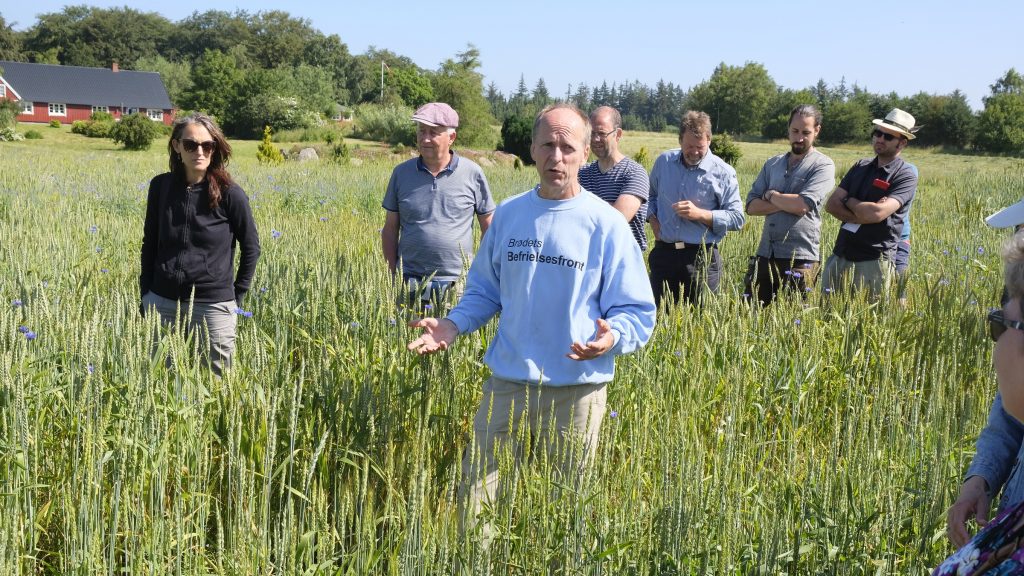


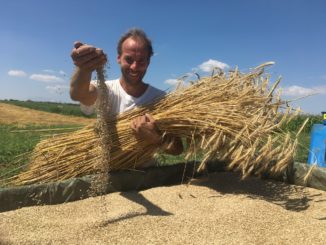
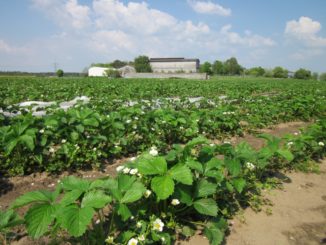
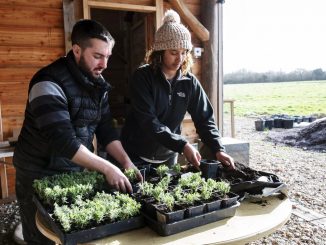
1 Trackback / Pingback
Comments are closed.